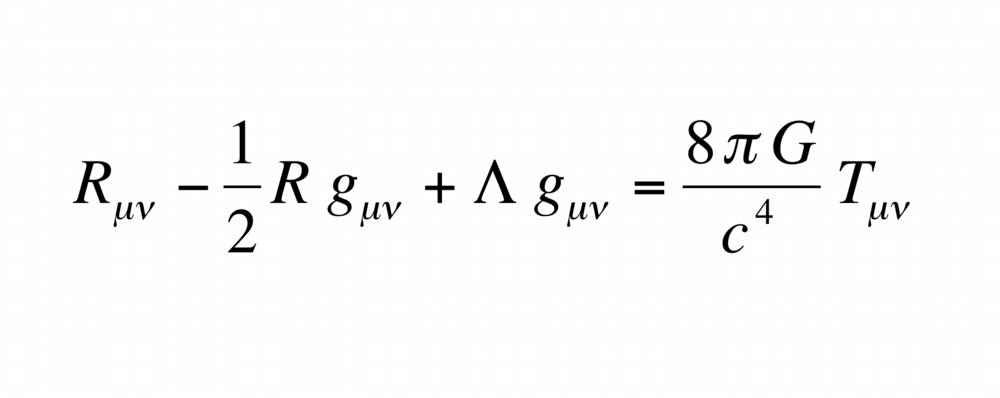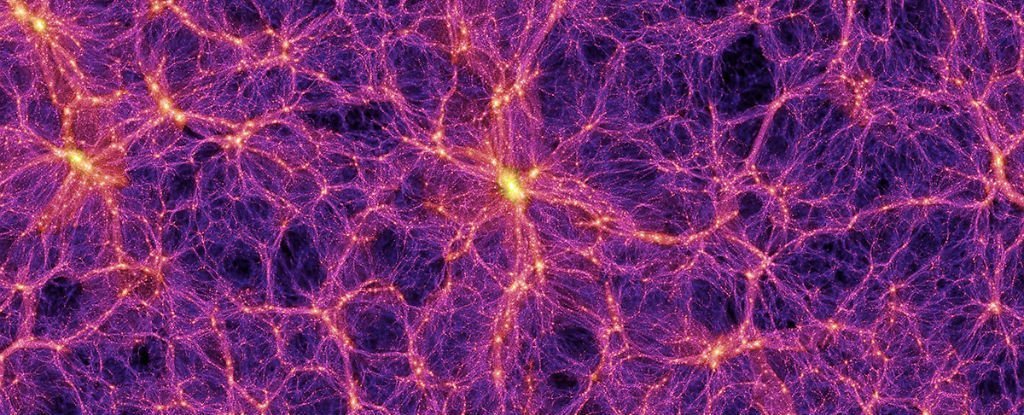The story of dark energy begins with a big question. Does the universe have a beginning?
Einstein didn’t think so. When he was formulating his revolutionary theory of relativity, he put in an extra variable (Λ aka lambda) into his equations to make sure the universe remained static - didn’t grow or get smaller.
That was the belief at the time, that the universe always was the way it is, and always will be. It’s called the steady-state theory.
A few years after, Edwin Hubble was studying distant galaxies and discovered a curious thing: The farther away a galaxy was, the faster it was moving away from us.
Now this sounds pretty odd, why is everything moving away from us? And why is there a relationship between the distance of an object and it’s speed?
The best answer we could find is this: the universe is expanding. This discovery came as a shock to the physics community, it’s likely that it was going to be ignored if Hubble hadn’t been a very well respected astronomer.
The fact that the universe was expanding meant that the universe wasn’t static, like was previously thought. It also meant that the extra Λ that Einstein put into his equations was no longer necessary.
That kind of embarrassed Einstein. He famously stated that Λ, the ‘cosmological constant’, was his ‘biggest blunder,’ and of course got rid of it. It made his equations uglier and he was happy to do away with it. Then things were fine for a few decades.
Up until the late 80s, when two groups of researchers tried to study VERY distant galaxies. Here they found something completely unexpected: not only were the galaxies faster the farther they were, they were even faster than we expected.
And so the realization slowly dawned on people: the universe wasn’t just expanding. The expansion was accelerating!
This wasn’t a very long time ago. In 2011 the Nobel Prize in Physics was awarded to Adam Riess, Brian Schmidt and Saul Perlmutter “for the discovery of the accelerating expansion of the Universe through observations of distant supernovae.”
But now the big question became, why is the universe accelerating, and what is causing this acceleration?
The honest answer is that we still don’t know. But we do have a bunch of theories, the most widely accepted one is Einstein’s cosmological constant, Λ.
Because, you know, we physicists love Einstein so much we can’t bear to see him be wrong. So we bring the cosmological constant back from the dead, and spend our time trying to determine it’s value.
This time the cosmological constant isn’t there to put the universe in a steady-state. Instead, it acts as a repulsive force that’s causing the universe expand. The cosmological constant has negative pressure.
And this is what we call dark energy. This mysterious thing that’s causing the expansion of the universe to accelerate. We think it makes up more than 70% of the energy in the universe.
Of course, not everyone buys this mysterious dark energy, something that has never been detected. After all, it’s just a theory. And their are alternative theories as well. Dark energy, or the cosmological constant, is just the one that fits the data the best.
One alternative theory is that our particular galaxy happens to be in a cosmic void. Galaxies aren’t spread evenly across the universe, they clump together and form in filaments. In between, there are voids with much less ‘stuff’ in them.
If we happened to be in a cosmic void, then things would certainly appear to us as if they were accelerating away from us, because we’d be in an area much less dense. The universe is ruled by gravity, and gravity wouldn’t be on our side.
As of yet though, we don’t know whether we’re in a void or not. We don’t know whether dark energy is really a thing. But the data seems to like it. These things are just models we have, that we’ll work with until we find something that explains what we see better.

 Read on Twitter
Read on Twitter



